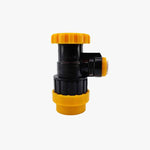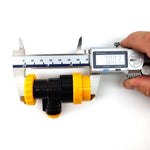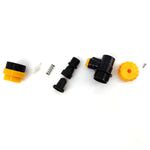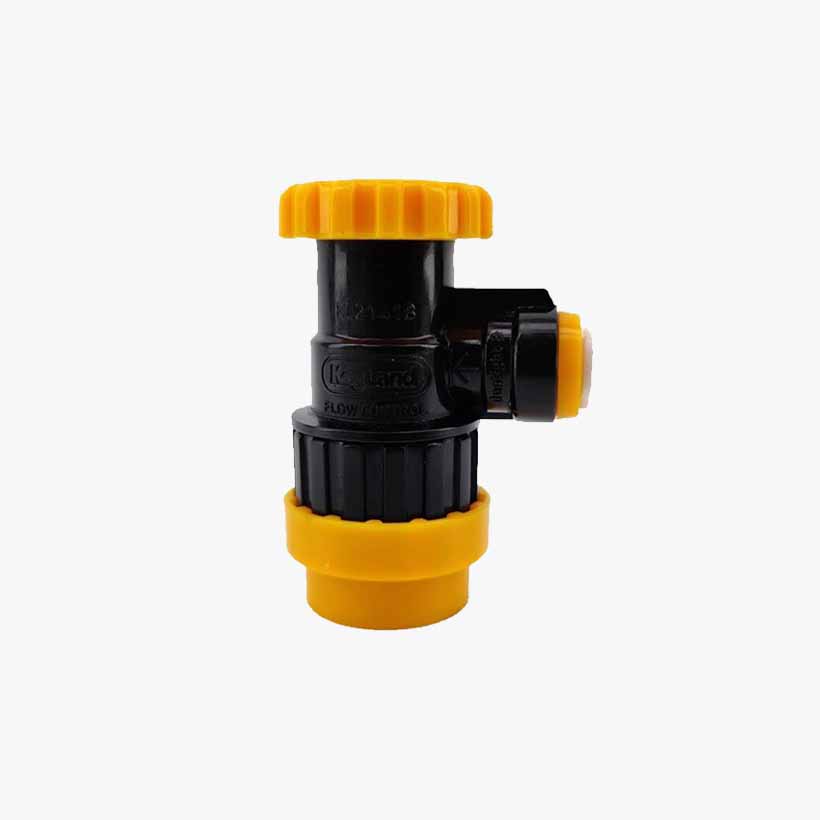
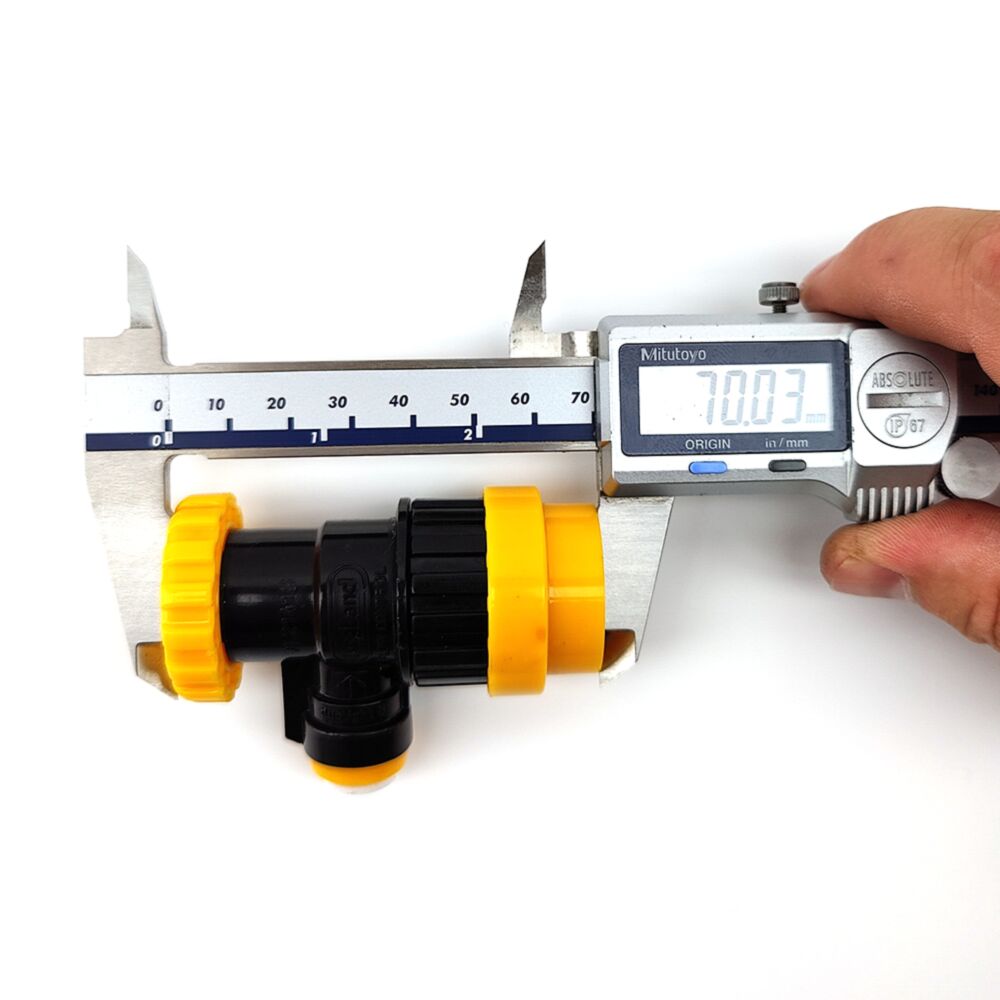
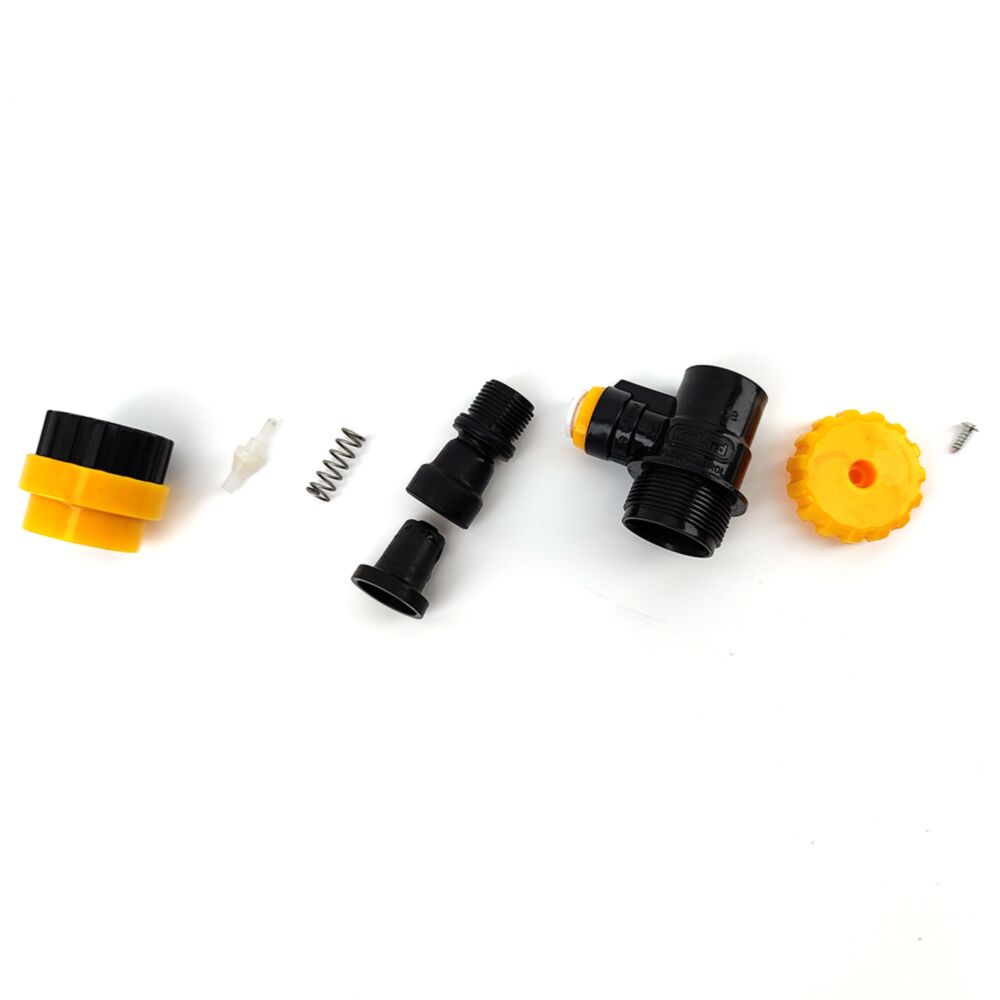
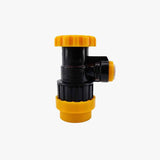
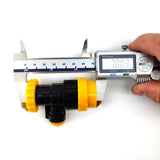
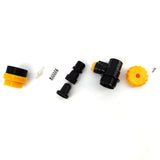
Flow Control - Duotight 8mm (5/16") Ball Lock Disconnect - LIQUID
Description
If you want an easy way to balance your beer lines this is the way to do it. Please be aware that even in the fully open position these FC disconnects do have some inherent flow resistance so you should use either shorter line or larger ID line that you would when compared with traditional ball lock disconnects. One of the benefits of FC disconnects is you don't need to rely on the small ID or line length to apply flow resistance so it would not make sense to use long lines or small ID lines as well as this is the job of the FC device.
This is perfect for people who want to serve a large range of beverages with differing carbonation levels as it gives you the ability to adjust resistance easily. Now with the added benefit of duotight fittings built in.
This particular ball lock disconnect has been designed to suit 8mm Beer Line. Due to the integrated duotight fitting the line will simply push directly into this fitting.
EVABarrier 4mm ID x 8mm OD Line (Best for short draw systems such as our kegerators)
or
EVABarrier 5mm ID x 8mm ID Line
This all new ball lock disconnect sets a new bar! The integrated duotight design means you can connect your beer line directly, easily and reliably - no need for additional fittings or clamps. It is a robust and super compact compared to the previous Stainless Steel Flow Control Ball Lock that has been discontinued due to the difficulty in repeated tooling and overall cost of raw materials.
Shipping information
- Order before midday (mon - fri) for same day shipping
- Free Shipping for orders over £80 (DPD next day service)
- Discounted shipping for orders over £40
- Smaller items ship with royal mail from £2.90 (£1 for orders over £40)
Prices are calculated at the checkout. Please see our full shipping policy here.

Free next day delivery on orders over £80
Flow Control - Duotight 8mm (5/16") Ball Lock Disconnect - LIQUID
- Related products
- Recently viewed

